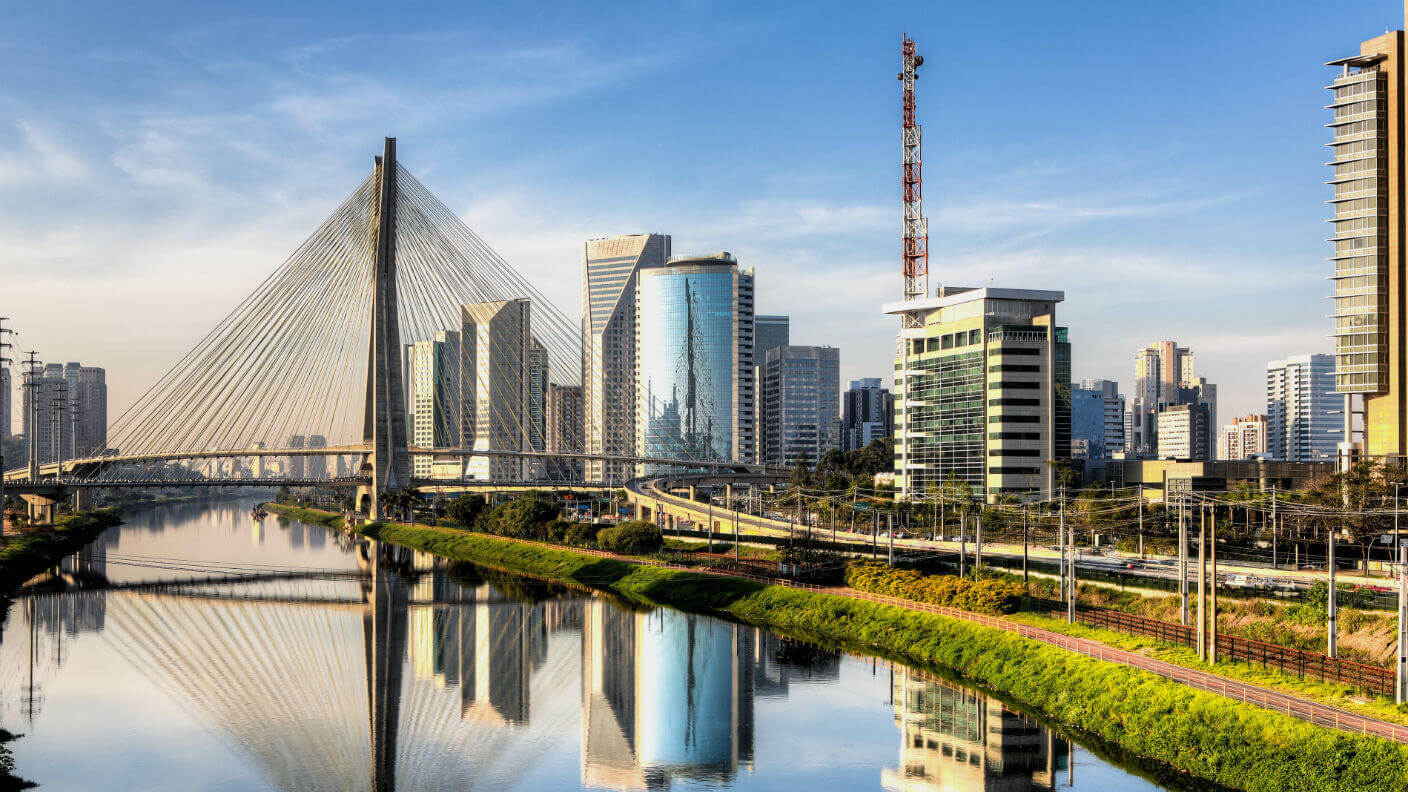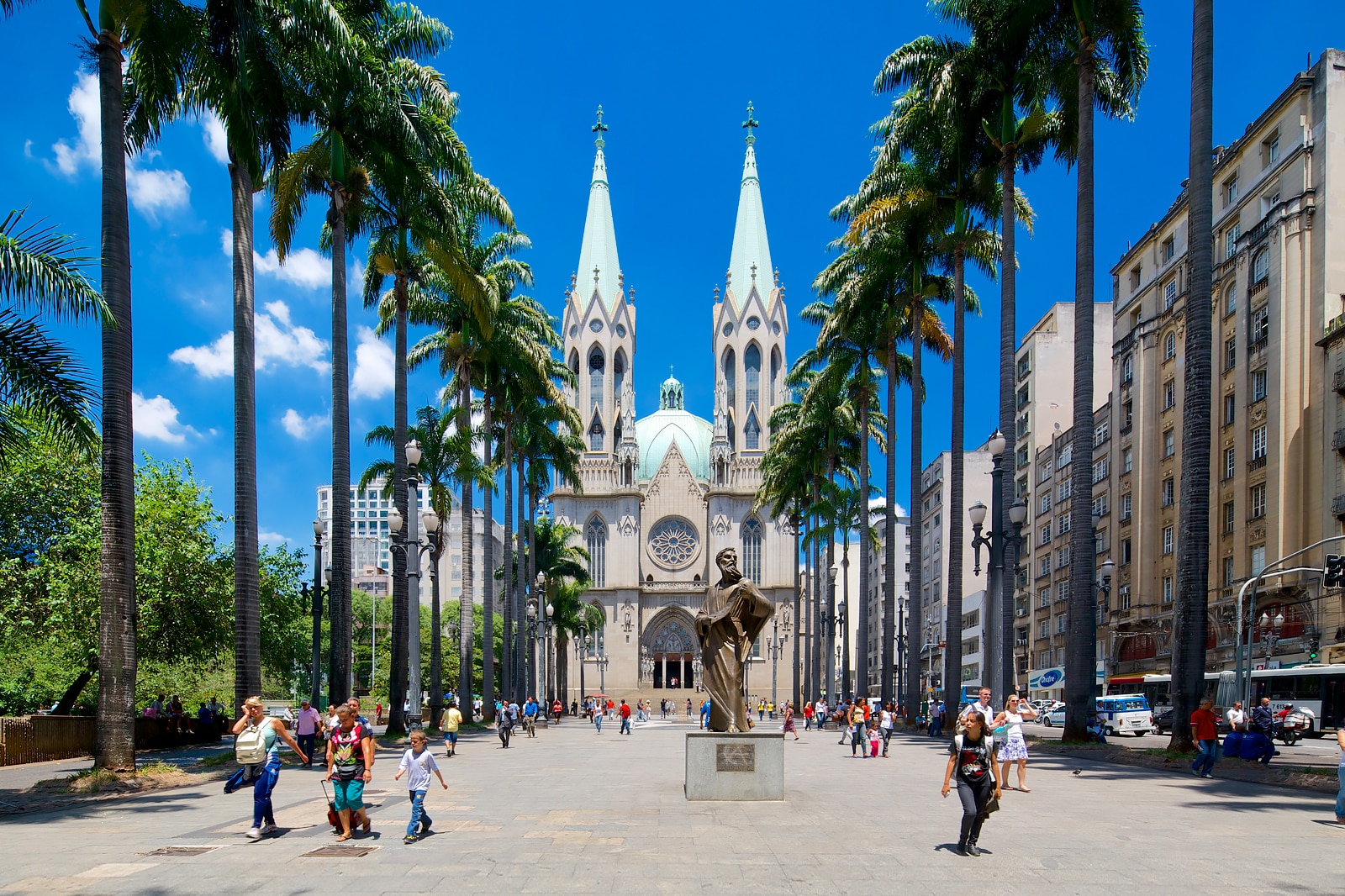Sao Paulo

Sao Paulo, the largest city in Brazil and South America, is a vibrant metropolis that seamlessly blends historical significance with modern dynamism. Its rich tapestry of cultural influences, architectural marvels, and thriving industries has made it a global center for commerce, innovation, and artistic expression.
Historical Development
Sao Paulo’s history is deeply intertwined with the Portuguese colonization of Brazil. The city was founded in 1554 by Jesuits who established a mission for indigenous people. During the 19th century, Sao Paulo experienced significant growth due to the expansion of coffee plantations, which propelled the city to become a major economic hub. The early 20th century witnessed the arrival of European immigrants, particularly from Italy and Japan, contributing to the city’s diverse cultural landscape. The city’s rapid industrialization in the mid-20th century solidified its position as a leading industrial center in Latin America.
Cultural Influences
Sao Paulo is a melting pot of cultural influences, reflecting its diverse population and rich history. The city’s art scene is renowned for its dynamism and experimentation, encompassing various genres, including contemporary art, street art, and traditional Brazilian art forms. Sao Paulo’s music scene is equally diverse, ranging from samba and bossa nova to rock, electronic music, and hip-hop. The city’s cuisine is a testament to its multicultural heritage, with a fusion of Brazilian, Italian, Japanese, and other culinary traditions.
Notable Landmarks
| Landmark | Historical Significance | Architectural Style | Cultural Importance |
|---|---|---|---|
| Pinacoteca de São Paulo | Founded in 1905, it is one of the oldest and most important art museums in Brazil, showcasing a vast collection of Brazilian art from the 19th and 20th centuries. | Neoclassical | Home to masterpieces by renowned Brazilian artists, it plays a crucial role in preserving and promoting the country’s artistic heritage. |
| Museu de Arte de São Paulo Assis Chateaubriand (MASP) | Inaugurated in 1968, it houses a world-class collection of Western art, spanning from the Middle Ages to contemporary times. | Modernist | A symbol of Sao Paulo’s cultural sophistication, it is renowned for its innovative architecture and its role in promoting international artistic exchange. |
| Ibirapuera Park | Designed by renowned landscape architect Roberto Burle Marx, it is one of the largest urban parks in the world, offering a green oasis amidst the bustling city. | Modernist | A popular destination for recreation, leisure, and cultural events, it is a symbol of Sao Paulo’s commitment to urban green spaces. |
| Theatro Municipal de São Paulo | Built in 1911, it is a grand opera house that showcases a diverse range of performances, from classical music to contemporary dance. | Art Nouveau | A landmark of Sao Paulo’s architectural heritage, it is renowned for its opulent interior and its role in promoting cultural excellence. |
Economic Powerhouse of Brazil: Sao Paulo Brazil

Sao Paulo, the largest city in Brazil, is not only a cultural and social hub but also a significant economic force, driving the country’s growth and prosperity. Its diverse and robust economy is characterized by a strong manufacturing sector, a thriving financial market, and a burgeoning technology scene.
Key Industries Driving the Economy, Sao paulo brazil
Sao Paulo’s economic prowess is fueled by a diverse range of industries, each contributing significantly to the city’s overall prosperity.
- Manufacturing: Sao Paulo is a major manufacturing center, producing a wide range of goods, including automobiles, electronics, textiles, and chemicals. The city is home to several multinational corporations and local businesses, making it a key player in Brazil’s industrial landscape.
- Finance: Sao Paulo is a major financial hub in Latin America, boasting a robust banking sector and a well-developed stock exchange (B3). The city attracts significant foreign investment, serving as a gateway for businesses seeking to access the Brazilian and South American markets.
- Technology: In recent years, Sao Paulo has emerged as a technology hub, with a growing number of startups and tech companies. The city’s talent pool and entrepreneurial spirit have attracted investment and innovation, contributing to the rise of a vibrant tech ecosystem.
Sao Paulo as a Major Financial Hub
Sao Paulo’s status as a leading financial center in Latin America is solidified by its well-established stock exchange, B3, and its robust banking sector.
- B3 (formerly BM&FBovespa): As the largest stock exchange in Latin America, B3 facilitates the trading of stocks, bonds, and other financial instruments, attracting both domestic and international investors. Its operations contribute significantly to Sao Paulo’s economic dynamism and its role as a regional financial hub.
- Banking Sector: Sao Paulo is home to numerous banks, both domestic and international, providing a wide range of financial services, including lending, investment banking, and wealth management. The city’s strong banking sector supports its economic growth and attracts foreign investment, further solidifying its position as a financial powerhouse.
Globalization’s Impact on Sao Paulo’s Economy
Sao Paulo’s economy has been significantly influenced by globalization, experiencing both opportunities and challenges in the global marketplace.
- Strengths: Sao Paulo’s strategic location, its well-developed infrastructure, and its skilled workforce have made it a desirable destination for foreign investment. The city has leveraged its strengths to attract multinational corporations, expand its export market, and foster economic growth.
- Challenges: Despite its strengths, Sao Paulo faces challenges in the globalized economy. Competition from other emerging markets, fluctuating exchange rates, and the need for continuous technological advancements are some of the hurdles the city must navigate to maintain its economic competitiveness.
Challenges and Opportunities

Sao Paulo, a vibrant metropolis and the economic powerhouse of Brazil, faces a multitude of challenges that are intricately linked to its rapid growth and urbanization. These challenges, while demanding attention, also present opportunities for innovation and sustainable development.
Addressing Inequality and Social Inclusion
Sao Paulo’s economic success has not been evenly distributed, resulting in stark disparities in income and access to essential services. To address this, the city has implemented various initiatives aimed at promoting social inclusion and reducing inequality.
- Social Programs: The city government has established social programs, such as Bolsa Família, to provide financial assistance to low-income families, enabling them to meet basic needs and improve their living standards. These programs have been instrumental in reducing poverty and promoting social mobility.
- Investing in Education and Healthcare: Sao Paulo has made significant investments in education and healthcare, expanding access to quality education and healthcare services for all citizens. This includes building new schools and hospitals, improving infrastructure, and training healthcare professionals.
- Promoting Economic Opportunities: The city is actively working to create economic opportunities for marginalized communities through job training programs, entrepreneurship support, and microfinance initiatives. These efforts aim to empower individuals and foster economic growth in underserved areas.
Tackling Crime and Enhancing Public Safety
Sao Paulo has historically grappled with high crime rates, particularly in certain neighborhoods. To address this challenge, the city has adopted a multifaceted approach that includes:
- Strengthening Law Enforcement: The city has increased police presence in high-crime areas, deployed advanced surveillance technology, and invested in crime prevention programs. This includes community policing initiatives that foster trust and collaboration between law enforcement and residents.
- Investing in Social Programs: Addressing the root causes of crime, such as poverty, lack of education, and unemployment, is crucial. Sao Paulo has expanded social programs to provide opportunities and support for vulnerable populations, aiming to reduce crime by addressing its underlying factors.
- Promoting Urban Renewal: Revitalizing neglected areas by investing in infrastructure, public spaces, and social services can help improve public safety by creating safer and more vibrant communities. This approach seeks to break the cycle of poverty and crime by providing opportunities and improving living conditions.
Protecting the Environment and Promoting Sustainable Development
Sao Paulo’s rapid growth has put immense pressure on its environment, leading to challenges such as air pollution, water scarcity, and deforestation. To address these concerns, the city has implemented a number of initiatives focused on sustainable development:
- Investing in Renewable Energy: Sao Paulo has committed to expanding its renewable energy portfolio, investing in solar, wind, and biomass power generation. This transition aims to reduce reliance on fossil fuels and mitigate greenhouse gas emissions.
- Promoting Sustainable Transportation: The city has invested in public transportation infrastructure, encouraging the use of buses, subways, and bicycles. This aims to reduce traffic congestion, improve air quality, and promote a more sustainable mode of transportation.
- Enhancing Waste Management: Sao Paulo has implemented comprehensive waste management programs, including recycling initiatives, composting facilities, and waste-to-energy projects. These efforts aim to reduce landfill waste, promote resource recovery, and minimize environmental impact.
Embracing Digital Innovation and Technological Advancements
Sao Paulo is a hub for digital innovation, attracting entrepreneurs, investors, and tech giants. The city is leveraging technology to drive economic growth and improve the quality of life for its citizens:
- Smart City Initiatives: Sao Paulo is implementing smart city initiatives, using sensors, data analytics, and digital platforms to optimize traffic flow, manage energy consumption, and enhance public safety. These initiatives aim to create a more efficient and sustainable city.
- Developing Fintech and Digital Finance: Sao Paulo is a leading center for fintech innovation, with a growing number of startups and established companies developing innovative financial technologies. This sector is driving financial inclusion and creating new opportunities for economic growth.
- Fostering Digital Entrepreneurship: The city has established incubators, accelerators, and co-working spaces to support digital entrepreneurs and startups. These initiatives provide mentorship, funding, and access to resources, fostering innovation and job creation.
Sao paulo brazil – Sao Paulo, Brazil, is a bustling metropolis with a vibrant energy. You can find everything from high-end fashion boutiques to local markets bursting with fresh produce. And if you’re looking to explore the surrounding countryside, you might even catch a glimpse of an ATR 72 plane taking off from one of the smaller airports.
These planes are known for their reliability and efficiency, making them a popular choice for regional flights. So, whether you’re in the city or exploring the surrounding areas, you’ll find plenty to keep you busy in Sao Paulo.
Sao Paulo, Brazil, is a vibrant city with a pulsating energy. It’s a place where you can find everything from world-class museums to bustling street markets. If you’re looking for a taste of the real Brazil, Sao Paulo Brazil is the place to be.
The city is a melting pot of cultures and influences, making it a truly unique destination.
